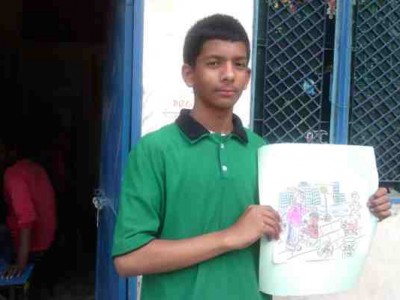
Conflict Affected Brains of 87 Million Children: UNICEF

A young child inside her house in the Muhamasheen area of Mathbah, in Sana’a, Yemen. 2 November 2015.
More than 86.7 million children under the age of 7 have spent their entire lives in conflict zones, putting their brain development at risk, UNICEF said today.
During the first 7 years of life a child’s brain has the potential to activate 1,000 brain cells every second. Each one of those cells, known as neurons, has the power to connect to another 10,000 neurons thousands of times per second.
Brain connections serve as the building blocks of a child’s future, defining their health, emotional well-being and ability to learn.
[ Visit and Support RMN Foundation Free Schools for Children ]
Children living in conflict are often exposed to extreme trauma, putting them at risk of living in a state of toxic stress, a condition that inhibits brain cell connections — with significant life-long consequences to their cognitive, social and physical development.
“In addition to the immediate physical threats that children in crises face, they are also at risk of deep-rooted emotional scars,” UNICEF Chief of Early Child Development Pia Britto said.
[ How India Abuses Children’s Right to Education ]
UNICEF figures show that globally one in 11 children aged 6 or younger has spent the most critical period of brain development growing up in conflict.
A child is born with 253 million functioning neurons, but whether the brain reaches its full adult capacity of around one billion connectable neurons depends in large part on early childhood development.
This includes breastfeeding and early nutrition, early stimulation by caregivers, early learning opportunities and a chance to grow and play in a safe and healthy environment.
Photo courtesy: UNICEF


